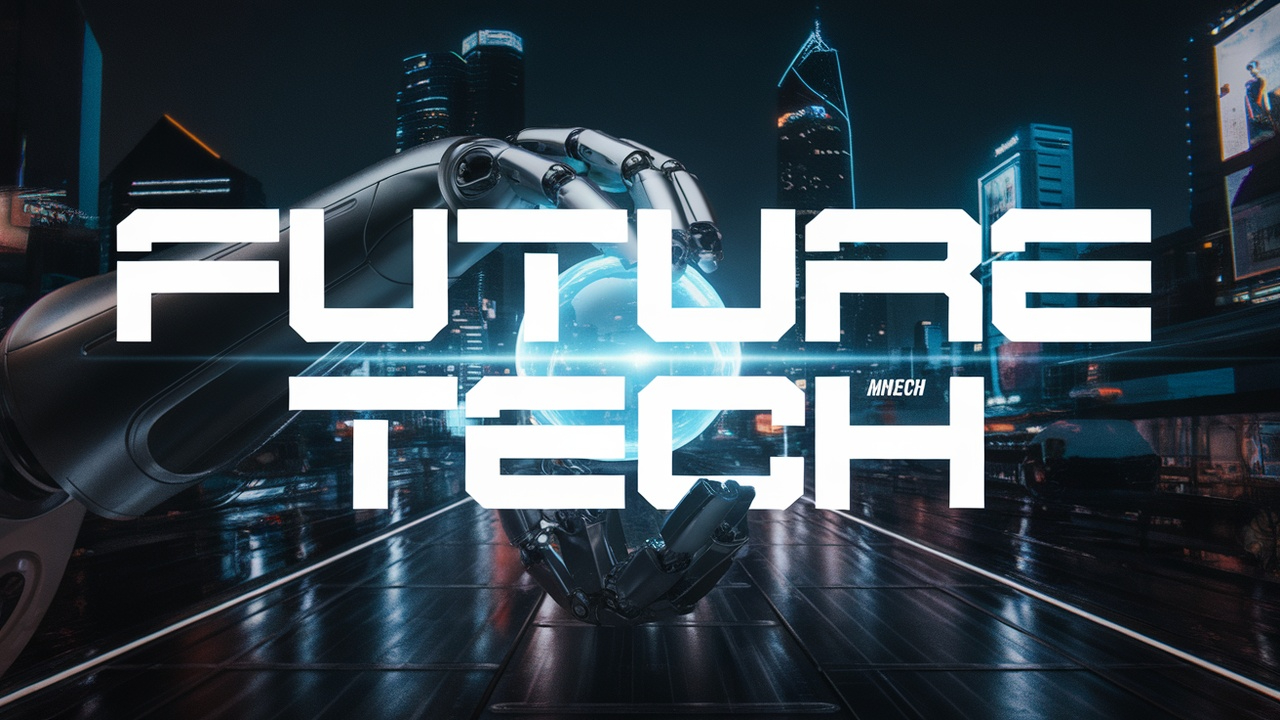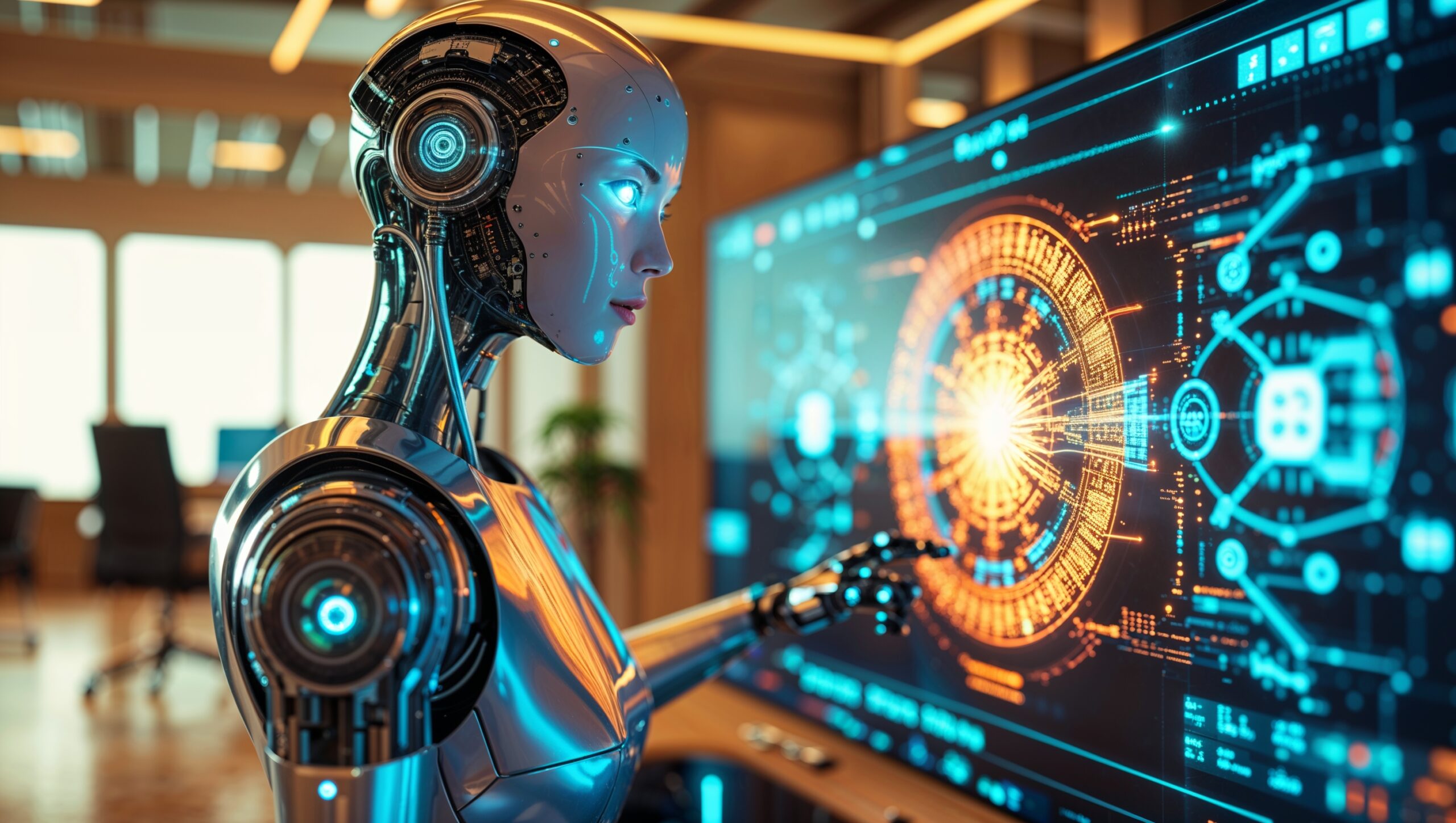Introduction
Technology is advancing at an unprecedented pace, and 2025 is shaping up to be a year of revolutionary breakthroughs. From artificial intelligence (AI) to quantum computing and sustainable innovations, the latest technological advancements are transforming industries and redefining the way we live.
In this article, we will explore the top 10 most groundbreaking technologies of 2025, highlighting their impact on different sectors and how they are shaping the future.
- Artificial Intelligence (AI) and Automation
Artificial Intelligence continues to dominate the tech landscape in 2025, with AI systems becoming more powerful, intuitive, and integrated into daily life. AI is now being used across industries, improving efficiency and revolutionizing operations:
Healthcare: AI-powered diagnostics can detect diseases earlier and suggest personalized treatments.
Finance: AI-driven trading bots predict market trends with high accuracy.
Customer Service: AI chatbots provide instant, human-like responses, reducing wait times and improving user experience.
However, the rapid adoption of AI also brings ethical concerns, such as job displacement and data privacy. In response, global regulators are working on new AI governance frameworks to ensure responsible usage.
- Quantum Computing: A New Era of Processing Power
Quantum computing is no longer just a theoretical concept—it’s now being applied to solve complex problems that traditional computers cannot handle. Companies like Google, IBM, and startups are making significant breakthroughs in this field.
Some potential applications of quantum computing in 2025 include:
Revolutionizing cybersecurity: Quantum encryption is making online transactions more secure.
Drug discovery: Scientists can simulate molecular interactions to create new, more effective medicines.
Financial modeling: Banks and hedge funds use quantum computing to optimize investment strategies.
As quantum technology matures, its impact on industries will become even more profound.
- Sustainable Green Technology
Sustainability is a major focus in 2025, with new green technologies emerging to combat climate change. Some of the biggest innovations include:
Green steel production, which reduces carbon emissions in the manufacturing industry.
Energy-efficient computing, lowering the energy consumption of massive data centers.
Advancements in renewable energy, including next-gen solar panels and hydrogen-powered fuel cells.
Many countries are investing in smart cities that integrate these sustainable technologies to create eco-friendly urban environments.
- Biotechnology and HealthTech
Biotechnology has made groundbreaking progress in 2025, leading to innovations that improve healthcare and extend human lifespan. Some of the most significant advancements include:
AI-driven drug discovery, which speeds up the development of new treatments.
Long-acting medications, such as extended-release HIV prevention drugs.
Brain-machine interfaces, allowing paralyzed individuals to control devices using their thoughts.
These breakthroughs are bringing us closer to personalized medicine, where treatments are tailored to an individual’s genetic makeup.
- The Rise of Spatial Computing and AR/VR
Spatial computing is transforming how humans interact with the digital world by blending Augmented Reality (AR), Virtual Reality (VR), and Mixed Reality (MR) into daily life.
Some exciting applications of spatial computing in 2025 include:
Healthcare: AR is used for remote surgeries and medical training.
Education: Students learn in immersive, interactive virtual classrooms.
Entertainment: Gaming and live events are more engaging with real-world overlays.
Companies like Apple, Meta, and Microsoft are leading the way in developing cutting-edge spatial computing devices.
- Autonomous Vehicles and Smart Transportation
Self-driving cars are no longer just a concept—2025 has brought them closer to full-scale adoption. Leading automakers and tech companies have introduced:
AI-powered navigation systems that reduce traffic congestion.
Autonomous public transportation in major cities.
Smart traffic management, which minimizes accidents and improves road safety.
Electric Vehicles (EVs) are also evolving, with longer battery life and faster charging. Governments worldwide are incentivizing the transition to autonomous, electric mobility.
- Robotics and AI-Powered Machines
Robotics is playing an increasingly important role in various industries, thanks to advances in AI and automation. The latest developments include:
AI-powered warehouse robots, which optimize supply chain management.
Robotic surgeons, capable of performing complex surgeries with precision.
Personal AI assistants, helping users manage tasks more efficiently.
As robots become smarter and more autonomous, they are transforming workplaces and reducing the need for repetitive human labor.
- 6G and the Future of Connectivity
5G was just the beginning. The rollout of 6G networks in 2025 is redefining connectivity, offering ultra-fast speeds and near-instant communication.
Some of the benefits of 6G include:
Seamless IoT (Internet of Things) integration, allowing smart devices to communicate in real time.
Faster and more immersive virtual experiences, enhancing AR/VR applications.
Ultra-low latency, improving remote work and cloud-based applications.
With 6G, smart cities, autonomous systems, and real-time communication will reach unprecedented levels of efficiency.
- Autonomous Aerial Vehicles and Flying Cars
The dream of flying cars is becoming a reality in 2025. Companies like Joby Aviation and Hyundai are testing personal aerial vehicles for urban air mobility.
Key developments in this field include:
Drone delivery systems, enabling faster and more eco-friendly deliveries.
Flying taxis, offering an alternative to congested city roads.
AI-powered aerial navigation, ensuring safe and efficient air travel.
While regulatory challenges remain, flying vehicles are expected to transform transportation in the coming years.
- The Evolution of Consumer Electronics
Consumer electronics have reached new heights in 2025, with smart devices becoming more intelligent and adaptive. Some of the biggest trends include:
AI-powered smart homes, where appliances anticipate user needs.
Wearable health tech, like smartwatches that monitor blood sugar, hydration, and stress levels.
Foldable and holographic displays, offering new ways to experience digital content.
The integration of AI and IoT (Internet of Things) is making devices more intuitive and user-friendly.
Conclusion:
The technological revolution of 2025 is bringing innovations that are shaping the future across industries. From AI-driven automation to green technology and quantum computing, these advancements are transforming the way we live and work.
As these technologies continue to evolve, it’s essential to stay informed and embrace the future. Which of these innovations excites you the most? Let us know in the comments!


